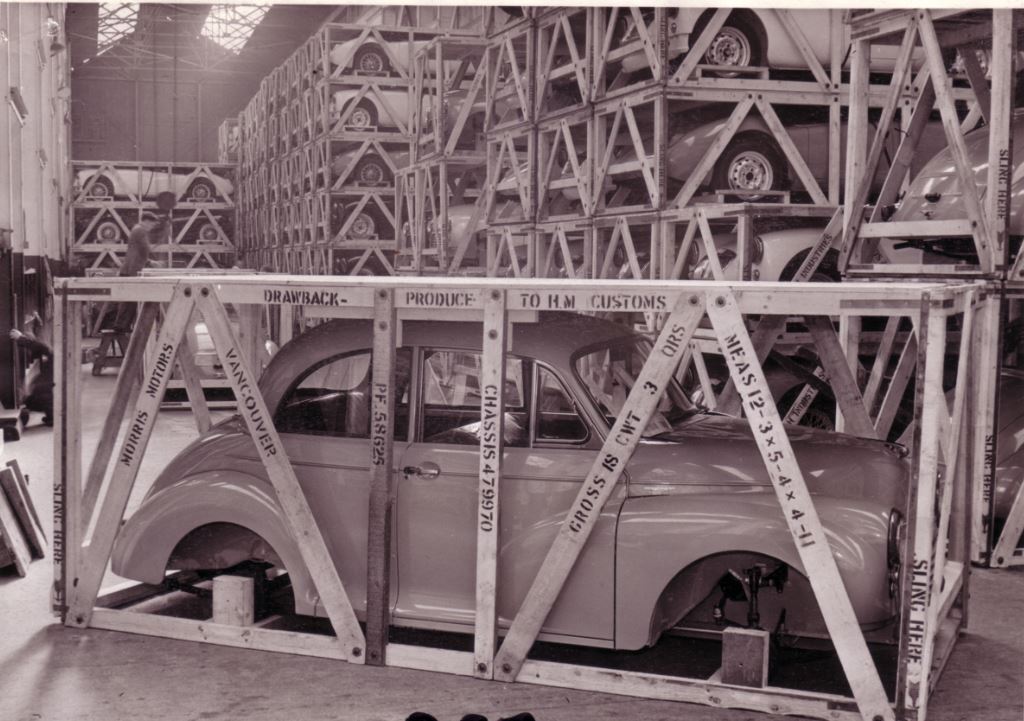Crated engine? How about an entire car?
We may be encouraged to think “out of the box” these days, but for many years, the box was just as important as its contents. At least in the auto industry anyway.
Wooden shipping crates for automobiles date back to at least 1908, when Henry Ford specified the type of wood and dimensions used for the crates in which his suppliers shipped parts to his factories. When those crates were empty, Ford dismantled them and the used the wood in various areas of the Model T. Ford also produced charcoal from the waste wood under the brand name Kingsford, which is still a leading brand in the U.S. and Canada.
Billy and Reggie Rootes built a huge auto empire in the U.K. by taking control of struggling manufacturers, and by 1920, the Rootes brothers were the largest distributors of cars and trucks in Britain. The Rootes’ delivery methods were so successful that the company moved into worldwide distribution—and that meant wooden crates. Lots of them.
By 1927, the Rootes’ distribution center in Chiswick was annually shipping 6,000 cars—Hillman, Humber, Singer, Sunbeam, Talbot, Commer, and Karrier—around the globe. The majority of British car manufacturers used the company, which lived up to its advertising slogan: “Cars packed, shipped, and delivered to all parts of the world.”
Due to its Commonwealth connection, Canada received crated British cars for decades, but the practice began to wane in the mid-1960s. The final blow came in 1973, when Japan’s K Line shipping company built the European Highway—the first roll-on, roll-off (RORO) purpose-built car carrier—capable of carrying 4,200 automobiles. Today’s car carriers can carry 8,000 vehicles, and wooden crates aren’t necessary.




